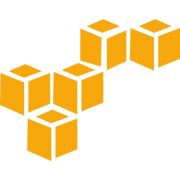Cloud Computing & Devops
Cloud computing is the delivery of computing services, including servers, storage, databases, and software, over the internet. DevOps is a set of practices that combines software development and IT operations to improve the speed, reliability, and security of software delivery. Cloud computing and DevOps are often used together to create scalable, efficient, and agile software development and delivery processes.

inperson
2 days
online
12 hours
Ansible
The Ansible platform is widely known for its straightforward deployment, user-friendly communication, lack of an agent for attentive users, and a wealth of expertise. Ansible training covers the fundamental concepts of Ansible and how to use it for configuration management and automation. The course includes modules on Playbooks, Roles, Inventory, Modules, and more. Participants will learn how to automate their IT infrastructure, including networks, servers, and applications, with hands-on training and real-world examples.

inperson
5 days
online
30 hours
AWS Devops
AWS DevOps training provides hands-on experience with the tools and services offered by AWS for DevOps. The training covers topics such as continuous integration and continuous delivery (CI/CD), infrastructure as code (IaC), containerization, monitoring, and automation. It also helps in gaining skills required for the AWS DevOps Engineer certification. AWS offers various training options, including classroom training, online courses, and self-paced learning, to cater to different learning needs.

inperson
5 days
online
30 hours
Azure Devops
Azure DevOps training covers various aspects of DevOps practices in the Azure cloud environment. The training covers a range of topics such as Azure DevOps Overview, CI/CD Pipelines, Git and Source Control, Continuous Integration, Continuous Delivery, and Continuous Deployment. It also covers Azure DevOps services like Azure Boards, Azure Repos, Azure Test Plans, Azure Artifacts, and Azure Pipelines. This training provides hands-on experience in using Azure DevOps tools to deliver software faster and with higher quality.

inperson
3 days
online
18 hours
Docker and Kubernetes
This training covers the basics of containerization using Docker and container orchestration using Kubernetes. It starts with an introduction to Docker, including building and managing Docker containers, Docker networking, and Docker storage. Then, it delves into Kubernetes, covering cluster architecture, deployments, scaling, and upgrades. Students will also learn how to use Kubernetes for container orchestration, including managing containerized applications across multiple hosts.

inperson
2 days
online
12 hours
Docker
Docker is a popular containerization technology that allows for faster application development and deployment. This training covers the fundamentals and deep dive of Docker, including the Docker ecosystem, architecture, images, containers, volumes, and networking. Students will learn how to build and manage Docker images, as well as how to operate containers and manage data persistency. The course also covers real-time application image builds and advanced topics such as image deep dive and housekeeping.

inperson
2 days
online
12 hours
Jenkins
Jenkins is a widely used open-source automation server that is used to automate the building, testing, and deployment of software applications. It provides a vast range of plugins, integrations, and tools to support Continuous Integration/Continuous Deployment (CI/CD) pipelines, making it a popular choice for DevOps teams.

inperson
2 days
online
12 hours
Puppet
The Puppet course covers automation with Puppet, a configuration management tool used for deploying, configuring, and managing servers and applications. Students will learn how to use Puppet's declarative language to manage infrastructure as code, and create manifests and modules for automating tasks such as package management, file configuration, and user management.

inperson
3 days
online
18 hours
RPA
Robotic Process Automation (RPA) is a technology that automates business processes by using software robots or bots. It reduces human effort and errors, increases efficiency, and improves productivity. RPA bots mimic human actions and interact with digital systems and software applications, enabling companies to streamline their operations and reduce costs. This course will equip you with RPA and its integration with cognitive solutions and analytics to enable organizations to adopt a "Digital Workforce" approach and revolutionize the way they work.